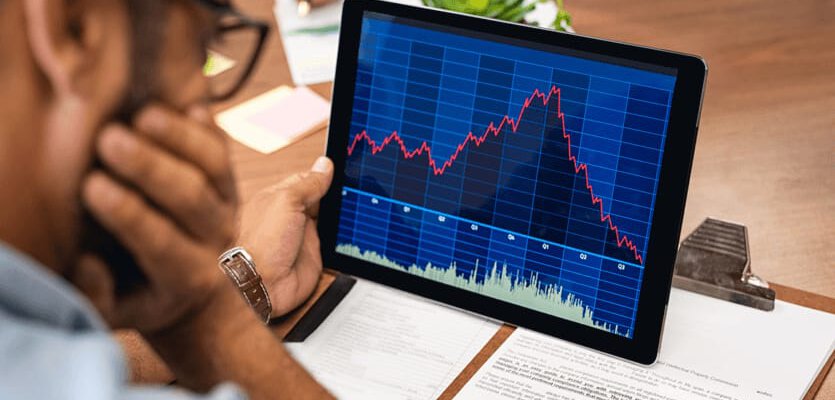Periodically, the stock market crashes.
It doesn’t happen every day, but when it does happen, its effects are lasting.
Businesses go bankrupt, people lose their jobs, and investors sell… And here’s the interesting part.
When investors sell indiscriminately as they often do, they create many opportunities for the guy who is sitting on cash and has been simply waiting.
If you’re that guy, you’re in the right place. After reading this article you are going to know what makes the best investments during stock market crash periods.
So, let’s start with the basics…
Understand your Goals first

Before you learn where you should put your money, it’s very important that you understand what your goals are when it comes to investing.
Understanding your goals will help you choose the most suitable investment approach for you.
Just try to consider the following questions and figure out where you fit in:
- How much risk can you take and how much work can you devote to your investments?.
- Do you believe the worst part of the crisis is over and the economy is headed for recovery or is it still deep into the crisis?.
Once you take into account these questions, you will be better equipped to choose what you should invest in and how.
Now, time to look at the best investments during a stock market crash…
Invest in Index Funds

If you don’t know when things are going to get back to normal and there’s still much insecurity in the markets, the best thing you can do is invest in an index fund.
Index funds are basically pooled money that professional portfolio managers invest for common investors. The difference with other traditional funds is that index fund managers invest in stocks that are included in an index.
Think of an index as a general indication of how a certain market is doing. For example, the S&P 500 index consists of 500 stocks that are selected to better represent the broad US stock market.
Hands down, one of the best investments during stock market crash periods you could make is buying an index fund that follows the S&P 500 index.
Over decades, the S&P 500 has been generally going up, steadily increasing the worth of common investors’ portfolios, and thus becoming a no-brainer for everyone.
If you’re a busy person and don’t like taking huge risks, an index fund that follows the S&P 500 is for you.
But make sure you can keep adding to it and don’t sell unless you absolutely need the money. An index fund may suffer losses during crises but it always grows over the long-term.
The next best thing about index funds (besides the almost certain long-term gains) is that they are very cheap when it comes to management fees. Traditional mutual funds usually charge high fees while underperforming index funds.
On top of that, you get to diversify by investing in hundreds of stocks with as much money as you want. Not very easy to achieve the same level of diversification that an index fund offers by buying individual stocks.
Speaking of individual stocks though…
Invest In Stocks On your Own

Now, if you don’t have at least some basic idea of how stocks work, I suggest you don’t pick stocks by yourself.
But if you have time to manage your own stock portfolio, have developed a framework for choosing stocks, and have a high risk tolerance, then picking stocks could work well for you.
Most importantly, it can work much better than investing in an index fund if you got all the positive indicators that the market is going to recover soon.
During an economic recovery, the extreme pessimism is replaced by a much needed strong dose of optimism that balances the market. If you buy undervalued stocks during that time, you ensure you can enjoy great profits during unhinged optimistic buying which takes place during bull markets.
Conclusion
Investing during an economic recession is no picnic.
As humans, we are wired to follow the crowd and the crowd isn’t buying during a stock market crisis.
But if you have equipped yourself with the mindset that this is the perfect time to invest in the market, then your biggest problem has already been solved.
The only thing you will need to do is understand which category you belong to.
If you don’t have experience investing on your own or the time to get it and things are still uncertain, you should buy an index fund.
If the economy is starting to climb the recovery hill, you have the discipline and knowledge to pick stocks, and can stand volatility, you could always try to manage your portfolio by yourself.
Now, I hope this guide helped you understand what your options are regarding the best investments during stock market crash periods. If it did, please take a moment to share it with others.
And leave a comment below if you got any questions! I’ll get back to you as soon as I can…
Thank you for reading!
Disclaimer: This information should not be viewed as financial advice. You should consult a financial advisor or do your own due diligence before you invest. The owner of this website and author of this article are not to be held liable for any undesired result by anyone who uses this information that is provided here in any way.

